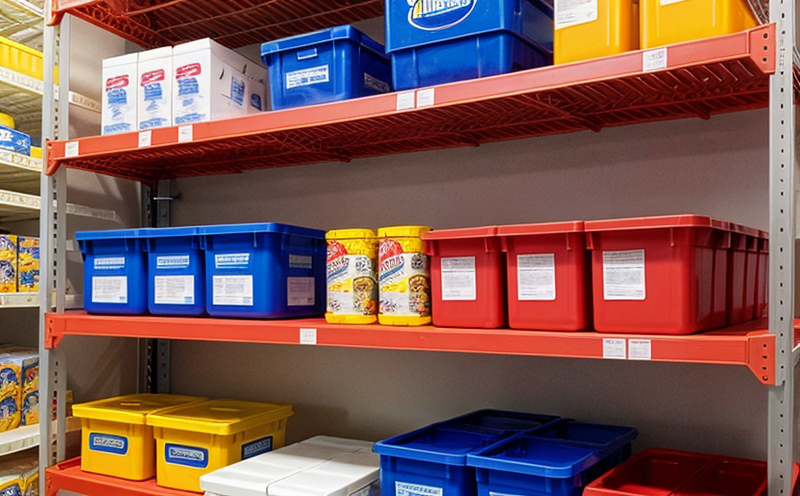ISO 120508 Shelf Life Profiling in Plant-Based Milks
The ISO 120508 standard provides a comprehensive approach to determining the shelf life of plant-based milks. This service ensures that food manufacturers adhere to international standards, ensuring product quality and safety over extended storage periods. The process involves several critical steps: sample preparation, inoculation with spoilage organisms, incubation under controlled conditions, and periodic analysis.
Sample preparation is crucial for accurate profiling. It includes the correct dilution of plant-based milk samples to ensure that the concentration of nutrients does not affect microbial growth rates significantly. Incubation typically occurs at 37°C (98.6°F) which is optimal for many common spoilage bacteria and fungi. During this phase, periodic sampling allows for the quantification of viable microorganisms using methods such as plate counts or ATP bioluminescence assays.
The standard also emphasizes the importance of selecting appropriate inoculum levels to simulate real-world storage conditions accurately. This helps predict how different environmental factors might impact shelf life, aiding in formulation adjustments and process improvements. For instance, understanding that temperature fluctuations can accelerate spoilage processes is essential for developing robust storage guidelines.
Environmental control plays a vital role in achieving consistent results. Controlled humidity levels are maintained to mimic typical retail or home environments where plant-based milks are stored post-packaging. Additionally, the use of sterile techniques minimizes contamination risks, ensuring accurate microbiological assessments.
The shelf life profiling process not only identifies when spoilage occurs but also provides insights into potential improvements in packaging materials and processing methods. By identifying critical control points early on, companies can enhance their products' stability without compromising taste or nutritional value.
- Sample preparation includes dilution to avoid nutrient concentration effects.
- Inoculation simulates real-world storage conditions with appropriate microorganisms.
- Incubation occurs at 37°C (98.6°F) for optimal growth of spoilage organisms.
- Periodic sampling quantifies viable microorganisms using various methods like plate counts or ATP bioluminescence assays.
Quality and Reliability Assurance
Implementing ISO 120508 shelf life profiling enhances a company’s ability to maintain consistent product quality across various distribution channels. By adhering to this standard, manufacturers can ensure that their plant-based milks meet stringent hygiene standards throughout their lifecycle.
The service includes rigorous validation protocols designed to minimize variability in test results. These protocols involve duplicate testing and inter-laboratory comparisons whenever possible. This ensures that all data points align closely with expected outcomes based on published literature or industry benchmarks.
Regular calibration of instrumentation used during profiling helps maintain accuracy over time, reducing the risk of erroneous conclusions about product stability. Calibration checks are performed regularly according to manufacturer recommendations and documented meticulously for traceability purposes.
Data management practices are integral to maintaining reliable shelf life profiles. All collected data undergo rigorous quality control measures before being analyzed using statistical tools such as ANOVA or regression analysis. These analyses help identify trends that could indicate areas needing improvement in production processes or packaging designs.
International Acceptance and Recognition
The ISO 120508 standard has gained widespread acceptance among food manufacturers worldwide due to its robust framework for determining shelf life. Many countries have adopted this approach as part of their regulatory requirements, recognizing it as a best practice in the field.
Recognized institutions and organizations often reference or require compliance with ISO 120508 when evaluating new products entering markets regulated by these entities. This adds credibility to brands that follow such standards, enhancing consumer trust and confidence.
Besides regulatory bodies, industry associations also encourage adoption of this standard among member companies seeking to stay competitive in a global market. Participation in international trade shows or exhibitions can further promote compliance with ISO 120508 as it demonstrates commitment to quality assurance practices recognized globally.
Environmental and Sustainability Contributions
- Precise profiling helps minimize waste by ensuring optimal production quantities.
- Improved product stability extends shelf life, reducing energy consumption during transportation.
- Accurate predictions help reduce raw material usage inefficiencies.
- Efficient processes lower carbon footprints associated with manufacturing and distribution.





